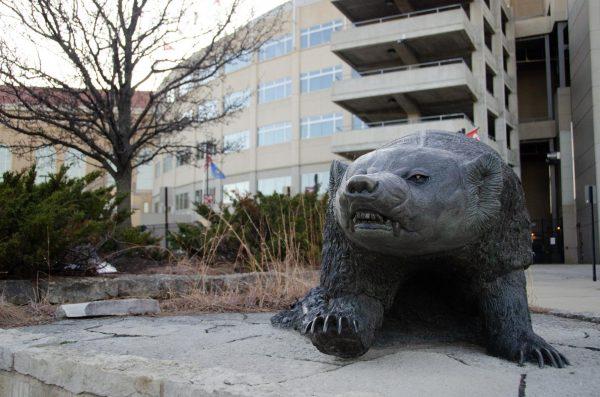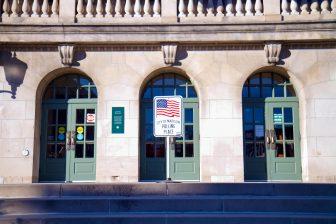The Wisconsin State Senate unanimously approved Assembly Bill 232 March 12, requiring the instruction of Asian American history in schools, a historic milestone for Asian American representation in Wisconsin, according to State Rep. Francesca Hong (D-Madison).
Hong was a lead sponsor of the proposal and instrumental in its passing.
“When Asian American students see themselves reflected in learning materials, it enriches the classroom environment for all students,” Hong said in an email statement to The Badger Herald. “Wisconsin schools will now provide culturally responsive and reflective materials that will benefit our society and our world immeasurably.”
The bill will require school boards to include instruction related to Asian American and Hmong American history alongside Native American, Black American and Hispanic history, which are already required, according to the Wisconsin State Legislature.
It has been a long and difficult fight to pass the bill, according to University of Wisconsin Ph.D. candidate in the Department of Curriculum and Instruction Chundou Her.
“Hmong American and Asian American communities in Wisconsin, for a long time, have been taking education and community growth in their own hands,” Her said.
Her noted the “perpetual foreigner” Asian American stereotype’s role in preventing Asian American-centered education at schools. Many Americans still perceive Asian Americans as foreigners in the United States, Her said. As a result, schools aren’t inclined to include Asian Americans in traditional history instruction.
Another barrier to the bill’s passage has been the misconception that Asian Americans are not disadvantaged in the United States, UW English and Asian American studies professor Leslie Bow said.
“Belief that Asians did not suffer from the same racial traumas as other groups in the United States is a pretty strong belief, and it’s actually not true,” Bow said.
Asian American history has not been touched on in public schools for so long because of this misconception, Bow said.
But, the bill’s passage is a symbol of progress, Filipino-American Ph.D. student with the UW School of Education’s Department of Education Leadership and Policy Analysis Tony DelaRosa said.
School should be a place to learn about multiculturalism, but Asian American history is too often taught in reference to war, rather than politics and culture, DelaRosa said.
“Asians have always been the big question mark … always either pushed to the margins, or just kind of completely flat out omitted,” DelaRosa said.
Undergraduate advisor and faculty associate in UW’s Asian American Studies department Lisa Ho observed the same pattern.
Many of her students at UW did not learn Asian American history until college because history instruction in the United States is very Eurocentric, Ho said.
“Integrating Asian American studies into the history curriculum really opens young people’s minds about what American history is,” Ho said.
The bill may be aimed at public schools, but it will still impact universities, Ho said.
UW offers Asian American studies courses which count toward the university’s three-credit Ethnic Studies Requirement, but students may not take any courses within this department.
The bill, though, will make Asian American history instruction mandatory in high schools and guarantee students are exposed to diverse perspectives of American history, Ho said. Under the bill, high school graduates may enter college with an understanding of Asian American history that might inspire participation in the university’s Asian American studies program, Ho said.
It is important that Asian American studies is available to students not just in college but in elementary, middle and high school as well, UW professor of Communication Arts and director of the Asian American studies program Lori Kido Lopez said in an email to The Badger Herald.
“Our educational work at the college level has always been focused on calling attention to the important contributions, struggles, and diverse cultures of Asian American communities here in Wisconsin and across the U.S.,” Lopez said. “And now those critical lessons will start at an earlier age.”
Despite the bill’s significance for Asian American visibility in academia, it is not perfect, UW professor of education curriculum and instruction Nicole Louie said in an email to The Badger Herald.
Louie pointed out the bill’s weaknesses, comparing it to Wisconsin Act 31, which requires schools to teach the history, culture and tribal sovereignty of the First Nations of Wisconsin, according to the Wisconsin Department of Public Instruction. Act 31 was unable to fully guarantee equity in the education of Native American history — it is possible Bill 232 will have a similar lack of impact for Asian American students, Louie said.
The bill needs to be supplemented with strong policies, infrastructure and funding to ensure progress, DelaRosa said. Most importantly, Asian Americans, particularly Hmong Americans, should write the curriculum and be centered in ongoing conversations about Asian American history instruction, DelaRosa said.
Bow, whose research concentrates on Asian American literature and literature by women of color, hopes that the bill will open the door for the inclusion of Asian American voices not only in history curriculum, but in arts and humanities instruction too.
“I would like to see the whole panorama of perspectives being taught,” Bow said.
Asian American history will require thorough and inclusive instruction, according to Her. Wisconsin schools need to teach Asian American history comprehensively instead of briefly acknowledging it as a tokenized chapter of American history, Her said.
It is important to not only teach Asian American history but understand its diversity, Her said.
“The sooner we can embrace the diversity of the Asian American experience, the faster we can move towards true racial equity,” Her said.














